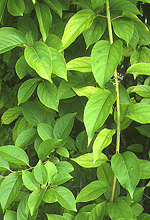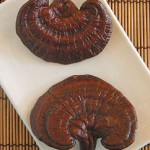 A new drug is being resesarched for its early success in the treatment of prostate cancer. This is noteworth here because the drug is derived from a Chinese herb.
A new drug is being resesarched for its early success in the treatment of prostate cancer. This is noteworth here because the drug is derived from a Chinese herb.
Like so many of our modern pharmaceuticals, the chemicals for this drug comes from a plnat which has been part of Traditional Chinese Medicine Materica Medica for several centuries, and for prostate cancer treatment it looks very promising.
The drug called Celastrol, is extracted from the "Thunder God Vine" Tripterygium wilfordii which has potent anti-inflammatory and antioxidant properties. There are many Chinese herbs with anti-inflammatory effects and you can read about some of them in other blogs listed below.
The drug seems to suppress the activity of a protein called p23. New research shows that p23 independently plays a key role in the way prostate tumors are fueled by the male hormone testosterone.
"Excitingly, drugs that block p23 such as celastrol.. have shown early promise in treating several diseases, such as arthritis and asthma, meaning this research is already a step closer to the clinic," said study leader Dr Charlotte Bevan, from Imperial College London, whose findings are reported in the journal Molecular Endocrinology.
"The next stage will be to test the effects of such drugs on prostate cancer cells in the lab."
Dr Julie Sharp, senior science information manager at the charity, said: "These results provide an alternative route by which scientists could potentially target prostate cancer. What's more, p23 has a much more defined role in the cell than HSP90, meaning that drugs that target it could potentially have fewer side effects than HSP90 inhibitors. We hope these findings will lead to better treatment options for men with prostate cancer."


